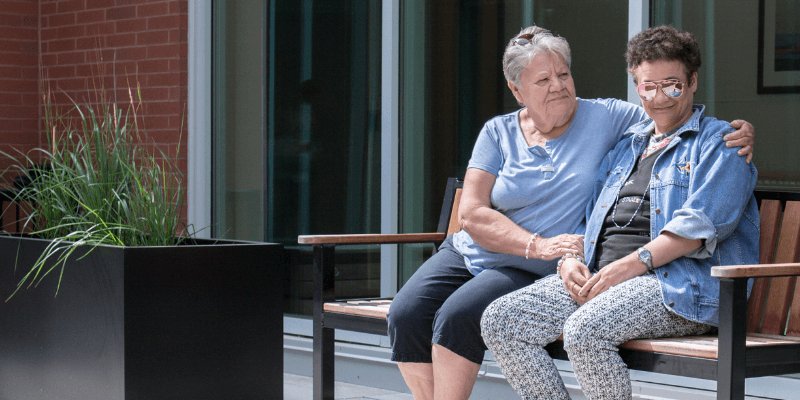Key Features of Mental Health Care Unit
Providing Inpatient and Outpatient Mental Health Care Services to the Residents of St. Thomas and Elgin County.

The Principles of Unit Design and the Philosophy of Care: Recovery
Recovery is the deeply personal journey that people with mental health conditions experience in gaining control, meaning and purpose in their lives. Recovery involves different things for different people. For some, recovery means the complete absence of the symptoms of mental illness. For others, recovery means living a full life in the community while learning to live with ongoing symptoms. Mental Health Care is a creative commitment to people, their relationships and community. The new space has been designed with key care areas described below to provide the best environment for recovery.
- This space provides an opportunity to connect with family and friends.
- It offers a round table seating area that can be used to share a meal, play a game or engage in conversation.
The television in addition to providing entertainment, can be used for educational purposes.
Interview Rooms
- These rooms are intended for "Talk Therapy" which is an important part of the working together that is necessary to understand what is needed and how best to help.
- Psychological and Physical safety features are noted in the design by offering privacy as well as the opportunity to leave using one of the "2 door exits".
Group Rooms
- "Groupwork" is an important aspect of both inpatient and outpatient therapy
- The focus of the group can be on resolving problems, developing new skills or abilities.
- The healing power of the group is the skill and attention the therapists bring to attending to the human experience and need for affiliation.
Admission Assessment Room
- Provides an area to assess the person's physical status as well as mental status.
Extra Care Area
This area is intended for person(s) requiring additional care because of their mental state.
Enhanced observation and engagement in addition to psychiatric intervention will assist person(s) with maintaining their safety and dignity until they are stabilized.
Recreational Therapy
- Recreation provides an opportunity to re-engage a person whose symptoms may have robbed them of the ability to enjoy or participate in activities.
- The safe and welcoming environment provides an opportunity for symptom relief through diversion either individually or in a group setting.
Patient Lounge
- The patient lounge is an opportunity for patients to socialize and be part of a community within the unit.
Patient Laundry
- Self care and attention to the activities of daily living or "ADLs" is an important to aspect of recovery. This includes laundry!
Activity/Dining Room
- The dining room design encourages socialization.
It also serves as a group meeting place for our "town hall-community meetings"
Quiet Room
- Historical roots as a "seclusion room" or inappropriate slang "rubber room"
- As evidenced based care and best practices evolved, the room function has changed to focus on quiet contemplation, relaxation, sensory and grounding strategies to assist individuals in self management.
- This room can also be accessed voluntarily for quiet space
Outpatient Interview Rooms
- These rooms are intended for "Talk Therapy" which is an important part of the working together that is necessary to understand what is needed and how best to help.
- Psychological and Physical safety features are noted in the design by offering privacy as well as the opportunity to leave using one of the "2 door exits".



